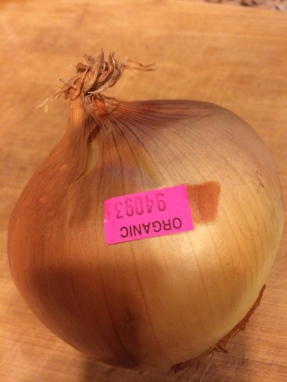Nate the nematode here, reporting to you live from a large pile of yard waste in Kingston WA. Its a comfortable 145 degrees here in this pile, and I’m hanging out with my best friends, microbial Matt and Ella Eisenia. We’re chewing through this stuff as fast as we possibly can, but its hard to keep up when they are bringing in new truckloads every day! Somebody needs to take some of this awesomely aerated material and put it back on their gardens!
Yes, this is what I do with my free time- I go look at piles of dirt, and imagine what happens inside them. Yes, I know, I am weird. BUT, if you are interested in climate change actions, you have to go everywhere the issue takes you! So off to the composting facility we go.
I recently took a tour with my Zero Waste friends to the newly reopened Olympic Organics facility in North Kitsap County. This facility accepts residential and commercial organic waste material including yard and food wastes, and runs it through a series of steps to turn it into products that are good for your garden. This 14 acre facility starts with the basic yard waste you see below- branches, stumps, weeds, and other stuff people have hauled out of their yards- and combines it with more nitrogen-rich sources of material including food waste from several of the County’s school districts.

Newly arrived yard waste at Olympic Organics is piled up as it awaits its turn through the grinder (far left of photo)

Looking at the backs of the compost holding bays, where air is pushed in through the piles using a series of pipes and fans
The yard waste is ground and piled into holding bays, where pipes running through the length of the bays provide oxygen and help maintain the correct temperatures (the pile must be maintained between about 130 F and 165 F for a few days, and above 114 F for a few weeks, to kill off harmful bacteria and viruses) over the months during which the microbes most of their work, eventually transforming the product into a rich compost suitable for gardening and topsoil applications.

Olympic Organics and Green Mountain Technologies staff explain the equipment they use to monitor composting temperatures. iPad interface of monitoring software is in the foreground.
Also really cool is the technology Olympic uses to track and maintain the health of their compost. Working with Green Mountain Technologies, Olympic has created an easy-to-use system that allows them to track and remotely adjust the fans that help them maintain correct temperatures; operators can check on the piles in real time and respond to potential issues quickly, without even having to be on site. These types of advances in composting technology are providing huge gains in the quality and efficiency with which compost products can be generated.
OK, you are saying, all this is fascinating, but what does it have to do with climate change? Well, it matters for a couple of important reasons. When we put organic materials into our landfills, they primarily decompose anaerobically- without oxygen- which produces methane. Composting breaks down organic waste under aerobic conditions, which produces primarily CO2. Methane is a powerful greenhouse gas which, pound for pound, has an impact on climate change 20 times that of CO2. Despite this, while over 36 million tons of food waste was generated in the US in 2012, only 5% of that was diverted for composting. The diversion of food waste to aerobic transformation into compost has a huge potential for realizing emissions savings. In addition, rather than a useless product- landfill- we end up with a useful product, compost that we can use to enrich our soils and gardens and cycle back into the process of growing plants.
In addition to these very real advantages to composting, local composting is a great way to even further reduce our carbon footprint. My community’s waste gets sent out to eastern Oregon to be landfilled- hundreds of miles by truck and rail from us, costing us additional carbon footprint all along the way. Compare this to using a local composting service that only has to haul your materials a matter of a few tens of miles to their facility, and then released the finished product back to the local community- that right there is making a small, closed loop on waste material management!

We interrupt this post for a Public Service Announcement: Take these stupid @$$ stickers off your fruit and veggie peels before you throw them in your compost! They don’t decompose easily and they are the bane of commercial composters’ existence! Thank you.
Olympic Organics is just getting started- they bought out the former owner last year, and are incorporating better material and storm water management, including some of the cool features I reviewed above. As the owner explained to us, it will be a process of time and trying to get the right balance of inputs with outputs and grow their company while maintaining product quality. For the sake of our gardens locally and for our climate globally, composting provides important services; all of us can do our part by composting more and sending less to our landfills.
The pink stickers and other paper stickers are ok; it is the plastic ones that need to be removed.
Barb the owner of Olympic didn’t seem to differentiate, he just said they were a nightmare on their end; when I stick ones like the one pictured here in my home compost, they certainly don’t seem to break down.
Pingback: Olympic Organics Tour June 4, 2014 | GMT